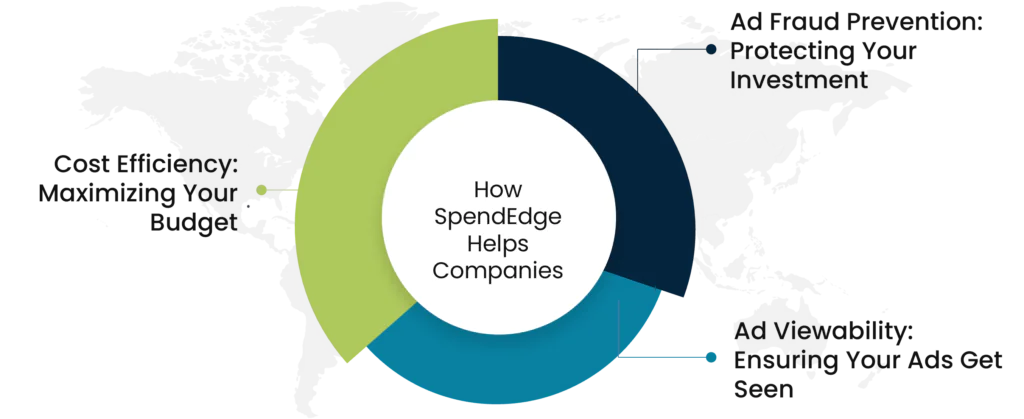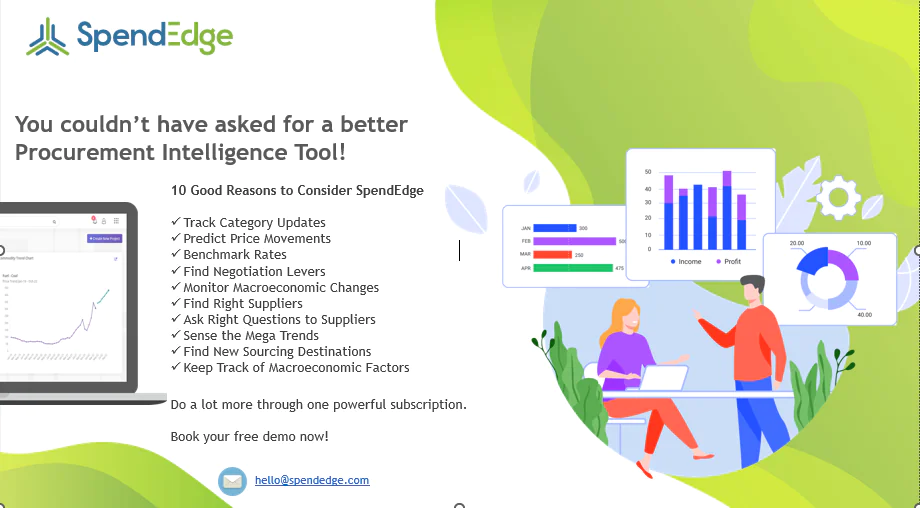By: George Mathew
Key takeaways
- Strategic Media Buying: Media buying is more than just securing ad space; it’s about strategic planning, negotiation, and execution to ensure maximum ROI.
- Navigating Challenges: Rising costs and ad fraud pose challenges in media buying, but with strategic planning and the right tools, businesses can mitigate these risks effectively.
- Digital Media Buying: Programmatic buying automates the process, allowing advertisers to bid on ad inventory in real-time, optimizing campaigns for better results.
- Cost-Saving Success: Leveraging industry expertise and negotiation skills, businesses can secure favorable deals, reduce media spend, and maximize the impact of their advertising campaigns.
Media Buying: Your Gateway to Success
In the ever-changing landscape of marketing, seizing opportunities to connect with your target audience is crucial. This is where the art and science of media buying come into play—a strategic approach that enables brands to leave a lasting impression through precisely chosen advertising channels. Media buying stands as a cornerstone in the advertising industry, facilitating the placement of advertisements across various media outlets to effectively reach target audiences. It’s a multifaceted and strategic endeavor that demands meticulous planning, negotiation, and execution. Media buying serves as the dynamic engine propelling your brand message across diverse platforms, ensuring it resonates with the right eyes and ears precisely when needed.
The Role of Media Buying
The role of media buying is pivotal in the field of advertising and marketing. It involves several critical functions that contribute to the success of advertising campaigns and ensure that a brand’s message reaches its intended audience effectively.
One of the primary responsibilities of media buyers is to identify and reach the right audience for a product or service. They conduct extensive research to understand the demographics, interests, and behaviors of potential consumers. By pinpointing the ideal audience, media buyers ensure that marketing messages resonate with the people most likely to convert into customers, thereby maximizing the return on investment (ROI).
Effective media buying is not just about securing ad space; it’s about securing it at the most favorable rates. Media buyers leverage their industry expertise and relationships with media vendors to negotiate cost-effective deals. This means optimizing the marketing budget to achieve the desired reach and impact without overspending.
Media buying goes beyond simple ad placement. It involves developing a comprehensive media strategy aligned with a company’s overall marketing goals. Media buyers work closely with marketing teams to determine factors such as message timing, creative content, and the mix of media channels to be used. This strategic planning ensures that the media plan complements the broader marketing strategy.
Buying tips: How to buy media?
Define Your Campaign Objective:
Before launching your ad campaign, it’s crucial to establish its primary goal. Whether it’s driving website traffic, enhancing brand awareness, or increasing social engagement, clarifying this objective will align your team’s efforts and facilitate effective tracking of the campaign’s success.
Identify Key Progress Indicators (KPIs):
To gauge the effectiveness of your campaign, determine the key metrics you’ll use to measure progress. These KPIs will serve as benchmarks for monitoring the campaign’s performance and making necessary adjustments along the way.
Allocate a Budget:
Determine the budget for your campaign, considering factors such as duration and reach. Whether it’s a daily allocation for an ongoing campaign or a fixed budget for a specific timeframe, ensure it aligns with your objectives and resources.
Identify Your Target Audience and Channels:
Understand who your campaign aims to reach and where they are most likely to be found. For instance, if targeting health-conscious, vegan consumers, consider platforms like YouTube, fitness websites, and cooking blogs. Tailor your media buying strategy to effectively reach this audience across various channels.
Set Up Your Campaign:
Depending on the chosen media buying platform, input campaign details such as type, creative assets, audience targeting parameters, and bidding strategies. Collaborate with your team or publisher’s account manager to finalize campaign setup.
Track Performance and Optimize:
Monitor the campaign’s performance closely once it’s launched. Collect data on ad effectiveness and analyze it to identify areas for optimization. Avoid making hasty decisions based on early data; instead, gather sufficient insights to make informed adjustments. For example, if certain ad formats or placements yield better results, reallocate resources accordingly to maximize campaign impact within the budget constraints
Navigating the Challenges of Media Buying in a Digital Age
Navigating the Rising Costs of Media Buying in the Digital Age
One of the foremost challenges facing businesses in media buying is the ever-increasing costs. As competition for ad space intensifies, especially in the digital realm, prices soar. This presents a daunting hurdle for companies, particularly those with limited advertising budgets. The key lies in strategic planning, negotiation, and optimizing the use of available resources.
Battling Ad Fraud: Safeguarding Your Digital Advertising Investments
Ad fraud remains a persistent menace in the digital advertising landscape. With tactics like click fraud, fake impressions, and bot-generated traffic, companies risk pouring their ad budgets into a black hole. To counter this threat, investing in cutting-edge technologies and fraud detection tools is essential to ensure that ad spend is reaching real, engaged audiences.
Contextual Advertising: Ensuring Brand Alignment for Success
Placing ads in the right context is crucial. Companies must ensure that their ads appear on reputable websites and alongside suitable content. Inappropriate ad placement can harm brand reputation and undermine campaign success.
How SpendEdge helps consumer electronics firms

Maximizing advertising budgets through Industry Expertise and Negotiation Skills
SpendEdge can leverage its industry expertise and negotiation skills to secure favorable deals, ensuring that businesses get the most out of their advertising budgets. This includes benchmarking pricing against industry standards, identifying cost-saving opportunities, and optimizing budget allocation for maximum impact.
Safeguarding Your Ad Spend: Expert Guidance on Ad Fraud Detection
Implementing advanced ad fraud detection technologies and practices is crucial. SpendEdge can advise on selecting the right fraud detection tools and strategies, as well as establishing stringent monitoring protocols to identify and mitigate fraudulent activities, safeguarding your ad spend.
Enhancing Ad Viewability with Third-Party Verification Services
To address ad viewability, SpendEdge can recommend third-party viewability verification services. These services provide transparent reporting and accurate measurements, helping companies track the viewability of their ads and optimize campaigns accordingly.
Digital media buying: How does it work
Digital media buying, also known as programmatic buying, is the process of automating the buying of ad impressions. This is achieved through open and private marketplaces that facilitate faster negotiation compared to the traditional approach, which involves building relationships with publishers and negotiating directly.
The automated buying structure consists of three key components:
- Demand-side platforms (DSP), which allow advertisers and ad agencies to create their campaigns, bid on ad inventory, and optimize their ads based on performance.
- Supply-side platforms (SSP), which allow publishers to sell their ad inventory. SSP is essentially the publisher’s version of DSP.
- The ad exchange marketplace, where advertisers and publishers buy or sell ad inventory through real-time bidding (RTB).
Success story: Cost-Saving Strategies and Precision in Consumer Electronics Advertising
Our client is a prominent player in the consumer electronics industry, was facing a pressing challenge in their advertising efforts. Over the years, their media buying costs had been steadily increasing, but their return on investment (ROI) had failed to match this upward trend. Additionally, they grappled with a lack of precision in targeting their desired audience.
SpenEdge with a team of skilled negotiators, initiated discussions with various media vendors. Drawing upon extensive industry expertise and long-standing relationships, we succeeded in securing favorable pricing and additional value-added perks for our client. This resulted in significant cost savings without compromising the quality and reach of their ad placements.
We conducted an exhaustive market analysis to pinpoint the most relevant media channels and platforms for our client’s’ target audience. We meticulously developed a holistic media plan that ensured that the company’s ads were positioned within contextually appropriate environments, guaranteeing a higher likelihood of audience engagement.
SpendEdge adept negotiation skills and industry relationships led to a significant cost-saving breakthrough. Our client witnessed a remarkable 20% reduction in their media spend. These newfound savings were reallocated strategically to other aspects of our client’s marketing initiatives, amplifying the overall impact of their campaigns.

Contact us now to solve your procurement problems!
Conclusion
In today’s marketing landscape, effective media buying stands as a linchpin for brands aiming to connect with their target audience. Powered by the synergy of art and science, media buyers orchestrate campaigns that resonate with precision across diverse platforms, ensuring maximum impact and ROI. Media buyers play a pivotal role in navigating the complexities of advertising, forging partnerships with publishers and optimizing budgets to secure prime ad space. By aligning campaigns with marketing goals and understanding the nuances of digital platforms, they propel brands towards success, with a keen focus on target audience demographics and campaign performance metrics, media buyers craft strategies that deliver tangible results. Leveraging advanced tools like Google Display & Video 360 and programmatic buying platforms, they optimize campaigns in real time, driving engagement and conversions. Through strategic negotiations and meticulous planning, media buyers maximize the value of every marketing dollar, enabling brands to achieve their objectives within budgetary constraints. By embracing innovation and staying abreast of industry trends, brands remain competitive and relevant in an ever-evolving marketplace. Effective media buying transcends mere ad placements; it’s a strategic endeavour that fuels brand growth, fosters audience engagement, and unlocks the pathway to success in today’s digital age.
Author’s Details
George Mathew
Associate Vice President, Sourcing and Procurement Intelligence
George is a procurement specialist at Infiniti Research and provides advisory services to clients across the pharmaceutical, CPG & FMCG, energy, and automotive sectors. He specializes in the procurement areas of industry benchmarking, cost modeling, rate card benchmarking, negotiation advisory, and supplier intelligence.




